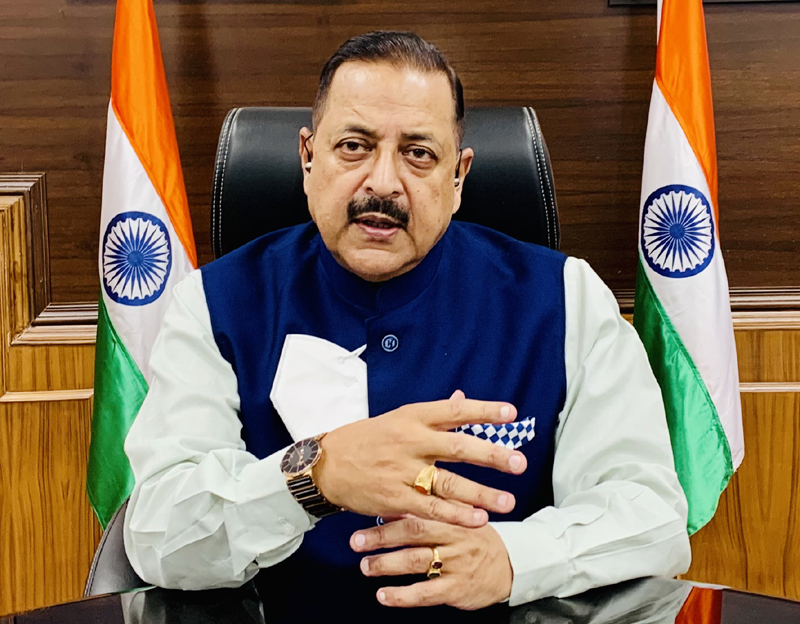
Excelsior Correspondent
NEW DELHI, Oct 13 : Union Minister of State (Independent Charge), Development of North Eastern Region (DoNER), MoS PMO, Personnel, Public Grievances, Pensions, Atomic Energy and Space, Dr Jitendra Singh said today that the RTI (Right to Information) cases recorded higher disposal rate during the COVID period of last six months compared to the same period during last year.
Briefing the media on the completion of 15 years of the RTI Act, which came into force on 12 October 2005, Dr Jitendra Singh quoted figures to state that in the last financial year of 2019-20 during the period between March to September 76.49% of RTI cases were disposed of. During the current financial year of 2020-21, during the same period of March to September, the disposal rate went up to as much as 93.98 %.
Going by the whole numbers, Dr Jitendra Singh said, during the same period in last year 8,962 cases were disposed of out of a total 11716 registered cases while this year, 8,015 cases were disposed of out of a total of 8528 registered cases.
Dr Jitendra Singh hailed the Central Information Commission for working assiduously during the lockdown period, despite the challenges of the pandemic. Higher disposal of cases became possible due to extensive use of e-office and latest use of technological tools for facilitating the hearings in the Commission, he said.
Central Information Commissioner also ensured that audio and video hearings were resorted to, to pave the way for smooth conduct of the hearings and facilitate participation of both the appellants and respondents. In this manner, the Commission ensured continuous disposal of cases.
It was observed that the RTI Act has contributed immensely to transparency and availability of information to the general public, despite several challenges being faced over the years which include repetitive RTI applications, issues related to personal grievances and the like which has inflated the number of RTIs and appeals.
From time to time, the Commission has been holding seminars, workshops and annual conventions to ensure interactions with RTI activists, general public, and the CPIOs and First Appellate Authorities for proper appreciation of the provisions of the RTI Act. Through this feedback mechanism, qualitative improvements have been brought about amongst all stakeholders. During the pandemic, video meetings were also held with stakeholders including RTI activists and former CICs/ICs to assist the Commission in moving forward with disposal of cases.
The Commission considered the possibility of holding seminars/ webinars/workshops as soon as feasible to further strengthen and streamline the implementation of the RTI Act.

